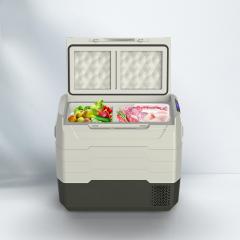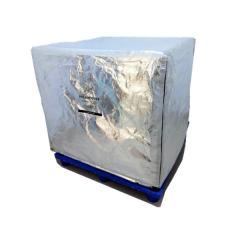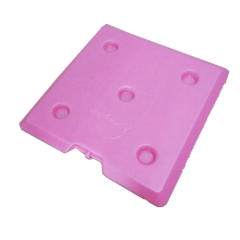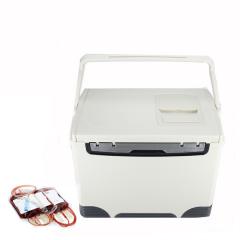In the ever-evolving landscape of global commerce, the cold chain industry stands as a vital cog driving the seamless distribution of perishable goods from farm to fork. Today, this sector is undergoing a paradigm shift, fueled by technological advancements, sustainability initiatives, and a heightened consumer demand for freshness and traceability. This article explores the key drivers propelling the cold chain industry towards a new era of innovation.
The Rise of Smart Technologies
At the heart of this revolution lies the integration of smart technologies. Internet of Things (IoT) devices, including temperature sensors, GPS trackers, and RFID tags, are transforming the way perishable goods are monitored and managed throughout their journey. Real-time data insights enable stakeholders to promptly address temperature fluctuations, reducing waste and ensuring product quality. Additionally, AI-powered predictive analytics are optimizing routes, minimizing transit time, and maximizing energy efficiency, further strengthening the resilience of the cold chain.
Sustainability: A New Frontier
Sustainability has emerged as a core priority for the cold chain industry. As global concerns over climate change intensify, companies are investing in eco-friendly solutions to reduce their carbon footprint. This includes the adoption of renewable energy sources for powering cold storage facilities, the use of insulated packaging materials made from recycled or biodegradable materials, and the implementation of circular economy principles to minimize waste. Moreover, advancements in temperature-controlled shipping containers and innovative insulation technologies are enabling longer-distance transportation with reduced energy consumption.
Consumer-Centric Innovations
The cold chain industry is also responding to shifting consumer preferences. With the rise of e-commerce and direct-to-consumer models, consumers expect faster delivery of fresh produce and a higher level of transparency into the supply chain. To meet these demands, companies are investing in last-mile logistics solutions, such as temperature-controlled drones and electric delivery vehicles, that can quickly and safely bring products to customers' doorsteps. Furthermore, blockchain technology is enhancing traceability, allowing consumers to track the journey of their food from origin to consumption, fostering trust and transparency.
Collaboration for Greater Impact
Recognizing that no single player can solve the complex challenges of the cold chain alone, industry stakeholders are forging partnerships across the value chain. Governments, private enterprises, NGOs, and academic institutions are collaborating to develop new standards, share best practices, and invest in research and development. These collaborations are fostering innovation, driving the adoption of cutting-edge technologies, and accelerating the pace of change within the industry.
Conclusion
The cold chain industry is on the cusp of a remarkable transformation, driven by smart technologies, sustainability initiatives, and consumer-centric innovations. As these changes take hold, we can expect to see a more resilient, efficient, and environmentally friendly system that better serves the needs of producers, distributors, and consumers alike. The journey ahead is exciting, and the potential for positive impact is immense. As we embark on this revolution, the cold chain industry stands poised to redefine the future of perishable goods distribution.

 English
English  français
français русский
русский italiano
italiano español
español português
português العربية
العربية 日本語
日本語 한국의
한국의 magyar
magyar










